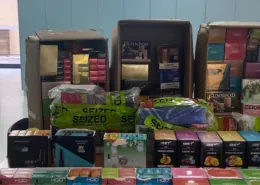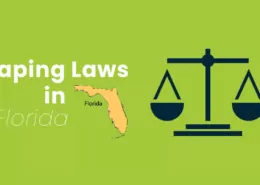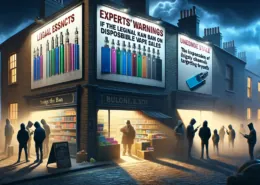Vapes Increasingly Pushed Underground in the US and UK
Vaping products are being increasingly pushed underground in both the United States and the United Kingdom, as a new research highlights the growing consequences of poor regulatory decisions. This shift not only sends a negative message about harm reduction tools but also compromises consumer safety, as these products enter the unregulated market.
Contrasting Approaches in the US and UK
The United Kingdom has long had a more regulated approach to vaping, promoting it as a safer alternative to smoking. The country has maintained lower taxes on vaping products to encourage smokers to switch to these alternatives. However, recent changes to vaping product regulations in the UK have raised concerns. For example, the government is preparing to ban disposable vapes, and many stores are already phasing them out ahead of the official June deadline. This regulatory shift has pushed a portion of the vape market underground, with a recent report by journalist Roger Bate indicating that 31% of the market is now unregulated, up from virtually none three years ago.
In contrast, the United States has been grappling with an unclear regulatory framework for vaping products. The Food and Drug Administration (FDA) has authorized a small number of vaping products, mostly tobacco-flavored, and denied approval for many others, particularly flavored products. This has created a legal void that has contributed to the rise of illicit markets. Many convenience stores in areas like Philadelphia have been forced to remove non-approved vaping products, and the FDA has ramped up enforcement, threatening retailers with fines and other penalties for selling unauthorized products.
The Rise of the Illicit Vape Market
Research conducted by WSPM in the US revealed that 97% of discarded vaping product packaging found across multiple states were from unauthorized products. As a result, many vaping products are now being sold on city streets and in informal outlets like flea markets and underground vendors. These vendors often operate alongside illicit drug dealers, making it nearly impossible to track the source or quality of these products.
One vendor in the US, who was previously making almost nothing from selling vapes, reported earnings of $700 per week from disposable vapes—demonstrating the lucrative demand for unregulated products. Unfortunately, the shift of vaping products to unregulated markets leads to a loss of accountability for product quality and safety. Additionally, there is no guarantee that age restrictions are being adhered to, potentially increasing the risk of underage access.
Health Risks and Consumer Safety
The dangers of this underground market are clear. Without proper oversight, there is no assurance that these illicit products meet safety standards, which could lead to health risks for consumers. The lack of regulation also means that products might not adhere to nicotine strength limits or safety requirements for battery use, potentially leading to injuries or other health issues. Furthermore, without access to safe and regulated products, many vapers may revert to combustible tobacco—a dangerous and readily available alternative.
Regulatory Failures and the Need for Change
The US must urgently address its regulatory shortcomings. The FDA has delayed the approval of numerous vaping products, creating confusion and leaving many consumers without access to the products they want. One of the first priorities for Dr. Marty Makary, the incoming head of the FDA, should be to speed up the approval process for good-quality vaping products, especially those that are in a legal limbo. The goal should be to establish a robust, regulated market that can replace the illicit market with safe, consumer-friendly alternatives.
In the UK, the government’s move toward banning disposables and pushing products underground is concerning. Despite the UK’s historically favorable stance on vaping as a harm reduction tool, recent moves may lead to unintended public health consequences. The rise in smoking rates in some parts of England could be linked to restrictions on vaping, reinforcing the importance of maintaining accessible, regulated alternatives for those who wish to quit smoking.
The Path Forward
Both the US and UK should focus on keeping vaping products legally available and properly regulated. Policies should be designed to encourage smokers to switch to safer alternatives while preventing the rise of illicit markets. In the US, this means streamlining the FDA approval process for vaping products and ensuring that consumers have access to a variety of safe, high-quality alternatives. In the UK, revisiting the ban on disposables and allowing consumers to access a full range of regulated vaping products will help preserve the public health benefits achieved in recent years.
Ultimately, both countries must recognize that smoking is the real threat, and vaping products, when properly regulated, can provide a safer alternative. By continuing to push these products underground, governments risk undoing the progress made in public health and increasing the likelihood that more people will return to smoking.
- Is Vaping While Driving Illegal in New Hampshire? - June 26, 2025
- Vaping Laws in Nevada – Everything You Need to Know - June 26, 2025
- Vaping laws in Nebraska – Age, Use, Sales Ban & New Rules - June 26, 2025









